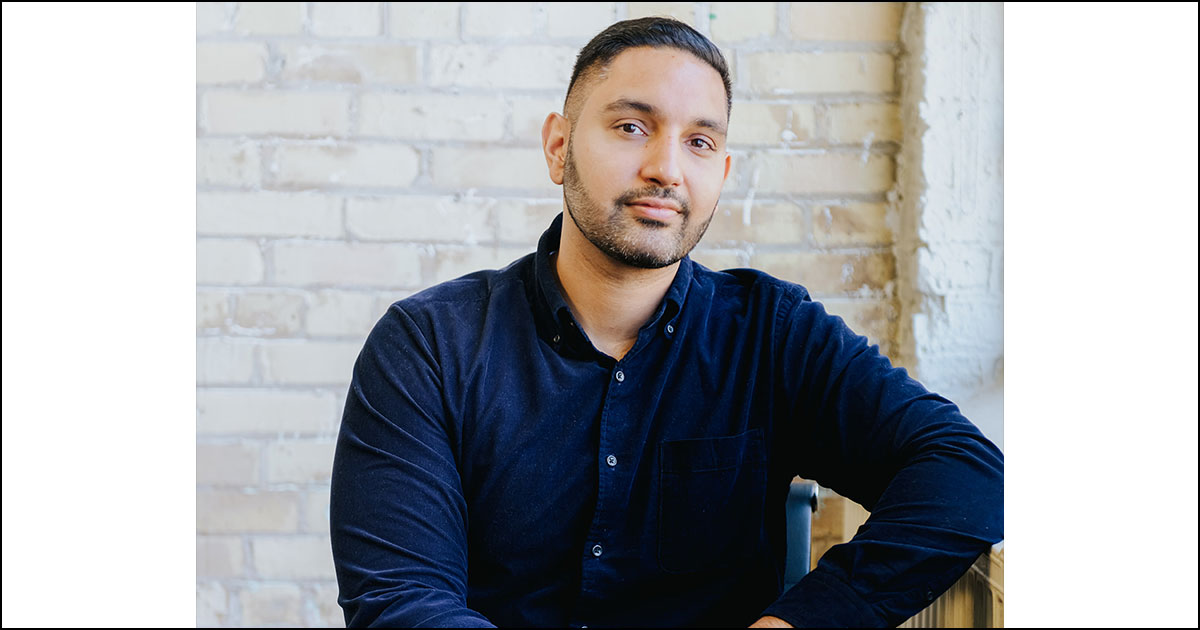Building a ‘Decentralized Lloyds of London’
The Origin Story of Re

Last Updated: By TRUiC Team
Reinsurance is a $1 trillion global market that is staffed by some of the brightest risk managers in the world. However, transparency in this industry can leave something to be desired.
According to founder Karn Saroya, Re is a blockchain-enabled reinsurance company that aims to be a 'decentralized Lloyds of London’ that allows people around the world to back just about any insurance risk with an unrivaled level of transparency. This is Re’s story.
A Circuitous Journey
Karn, like many entrepreneurs, didn’t set out to be one.
“In general, you rarely end up where you think you’re going to when you set off on a new journey professionally,” he says. “I started off my career as a management consultant, which, from a risk-adjusted return perspective, is a more rational professional path than entrepreneurship.”
He left management consulting to build a body scanner for retail clothing shops to help their customers choose the right size when shopping online. “Interesting idea, but a little creepy,” he says. So he developed a mobile application that tried to predict clothing styles a customer might be interested in given their interactions with scrolling designer “lookbooks.” That project met with some success, and he ultimately joined Shopify to run a mobile app-focused team.
Karn and his co-founders eventually left Shopify to join Y Combinator with an idea for an insurance application called Cover. How did he go from selling high-end fashion to insurance? “We recognized that we had a unique ability to build beautiful, easy-to-use apps and drive millions of people to them,” he says. “Insurance seemed like a lucrative business, with a dearth of compelling customer or purchasing experiences, and so we set off by trying to make getting insurance as easy as taking a picture.”
Over the next seven years, his team aimed to simplify insurance purchases and build a national insurance agency, eventually underwriting their own policies.
Re is Born
building an insurance business from scratch. “We saw an opportunity to create transparency and access to this market by memorializing insurance data on a blockchain and providing on-chain proof-of-capital reserves to regulators, investors, and the world at large. Like a decentralized Lloyd’s of London, we set out to enable those underwriter/actuarial teams to set up shop at Re to underwrite and take risks on a broad variety of insurance business.”
Although it has only existed for a few months, Re already provides the insurance backing for tens of thousands of businesses, service workers, farmers, and other specialty insurance programs.
Take Care of Yourself
Karn reminds early-stage entrepreneurs that they are in it for the long term and need to attend to their personal needs along the way.
“This is an ultra marathon, [and] it's going to take a long time,” he says. “You're going to dedicate a decade of your life to doing whatever you're doing, [so] stay healthy. Talk to your parents, go to the gym, drink water, wear moisturizer and sunscreen. Don't forget that you're not a martyr and that you've got a life to live. Take care of yourself, because there's really nothing else that's more important.”
Karn has learned this lesson from personal experience. “I think having done this a couple of times and felt like I was a little bit of a martyr the first couple of times, at the end of the day, it's on you, man. Just keep yourself healthy and happy to the extent that you can and good things will come from that.”
Expansion Plans
Karn says although the company is off to a quick start, he’s not resting on his laurels.
“We put on 35 million premium [with] just seven people,” he says. “There's a lot of operating leverage in the business. I think we can get to hundreds of millions in top-line with less than 10 people. It's a unique kind of opportunity to build something new into a massive space that is very unsexy, to the point where I need to explain that it's insurance for insurance.”
He says the company has hired a “unique set of individuals” that he has worked with for about a decade. “I feel like a lot of the basic tenets of, hey, is this thing survivable, those boxes have been checked for me,” he says. “I have a very good idea of the underlying economics of this business, what I need to make happen. I'm very excited about the prospect of the scale of this business and how transformative it can be…. I think of it as kind of a little bit of a substrate for capitalism. You can't really do anything without insurance or reinsurance. You can't drive your car. You can't build a building. You can't take to the skies. You can't have a doctor or a surgeon perform an operation. So I really do like how impactful the work is, even in a direct second or third-link type of way.”





